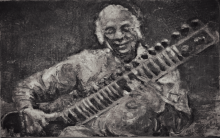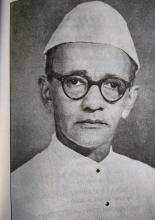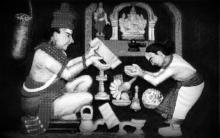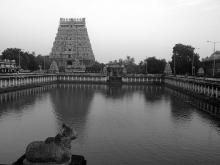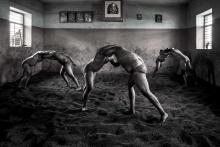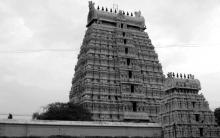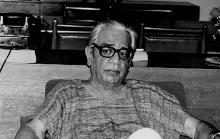"Meditations of Marcus Aurelius" by the ancient Roman Emperor Marcus Aurelius is one of the great books, which has an all-time relevance because of the practical knowledge, philosophical maxims and psychological insights that are expounded there. The worth of these observations will be more enhanced as Marcus Aurelius as an emperor had to face the problems of his government, had to lead his soldiers against outlandish tribes, and had to participate in the wars also.
Author:Prof. L V Shantakumari
It appears that the God Brahma who was so munificent in bestowing the boon of command over language to Venkatarama Shastri indulged in mischief in the matter of giving him speech. If this wasn’t true, what explains the fact that a Vidwan—an accomplished scholar—like him stammered at every step? It was for this reason that all the village folk referred to him as “Stammering Shastri.” This appellation was merely for the convenience of identification, not ridicule. Everyone had reverence-filled affection and respect for Shastri.
I don’t deem it inappropriate to concisely present a collection of my musical experiences over the last sixty to seventy years.
ಅನಪೇಕ್ಷಿತಗುರುವಚನಾ ಸರ್ವಾನ್ಗ್ರಂಥೀನ್ವಿಭೇದಯತಿ ಸಮ್ಯಕ್ |
ಪ್ರಕಟಯತಿ ಪರರಹಸ್ಯಂ ವಿಮರ್ಶಕಶಕ್ತಿರ್ನಿಜಾ ಜಯತಿ ||
ಗುರೂಪದೇಶದ ಅಪೇಕ್ಷೆಯಿಲ್ಲದೆ ಕಗ್ಗಂಟಿನಂಥ ಎಲ್ಲ ತೊಡಕುಗಳನ್ನೂ ಸುಲಭವಾಗಿ ನಿವಾರಿಸಿಕೊಳ್ಳುವ ಹಾಗೂ ಗಹನವಾದ ಪರಮರಹಸ್ಯವನ್ನೂ ಅರ್ಥೈಸಿಕೊಳ್ಳುವ ಸಾಮರ್ಥ್ಯವು ಸ್ವಂತವಿಮರ್ಶಕಶಕ್ತಿಯಿಂದ ಲಭಿಸುವುದು.
अकृशं कुचयोः कृशं वलग्ने विपुलं वक्षसि विस्तृतं नितम्बे |
अधरेस्रुणमाविरस्तु चित्ते करुणाशालि कपालिभागदेयम् ||
मारमणमुमारमणं फणधरतल्पं फणाधराकल्पम्।
मुरमथनं पुरमथनं वन्दे बाणारिमसमबाणारिम् ॥
The big problem with the system of republics is the constant infighting. Since their vision is so narrow, when there is an attack from an external enemy, these republics don't unite and offer resistance. It is for this reason an empire is necessary. But the problem with a kingdom or an empire is that the local and regional identities don't survive. An ideal kingdom should lay stress on the local as well as the pan national aspects. But how can this be achieved? This is indeed a big problem even in modern times.
Religious fundamentalism can be defined as strict adherence to certain fundamental theological doctrines as prescribed in the sacred text(s). Originally, fundamentalism[1] applied to the Christian faith and it called for belief in the literal truth of the Bible.
Recently, one of my acquaintances well-versed in science and technology posed me a question: “Normally, people like us—meaning those from the fields of either science and technology or others engaged in physical or theoretical studies—don’t typically like to say anything about subjects that we’re not directly familiar with or haven’t sufficiently pursued or made an authoritative study in. And especially on public platforms, we tend to talk even less about these things. But you—writers, poets, litterateurs, aren’t like this.
Purushottam Laxman Deshpande (1919-2000), popularly known by his initials, Pu La, was a polymath from Maharasthra. Apart from being a prolific writer, comedian, and orator, he was also a theater and film actor, music composer, harmonium player, singer, and screenwriter. Here is a rare documentary that came out during his 60th birthday.



